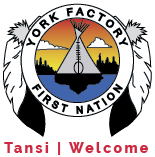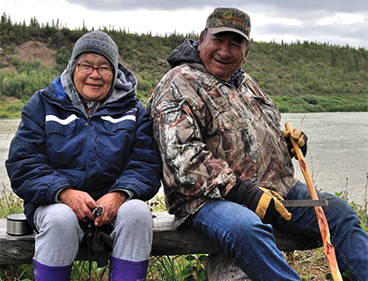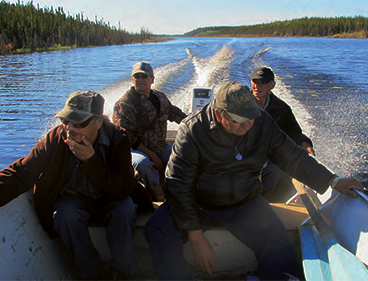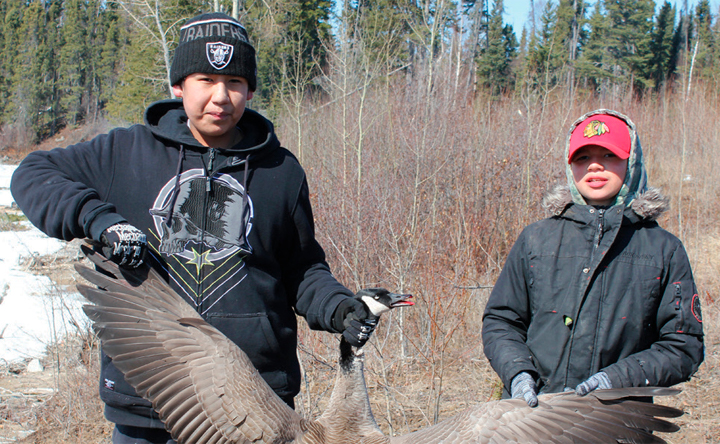Culture & Language
Traditional Knowledge (Ininéwi-Kiskénihtamowin)
Traditional Knowledge is fundamental and central to who we are as a people and culture. Our traditional knowledge is held by our elders and is a dynamic living process that is added to and adapted in the lives of successive generations of YFFN Ininéwak.
We are also a people with oral traditions. We did not customarily write about how we live; how we learn, share knowledge, experience our culture, make decisions and act in our daily lives. Rather, we learned from our parents and our community elders. They taught us everything about our lands and waters:
- how to live with and survive on the animals and plants of the land;
- how to travel safely through the forests, muskegs, waters, ice, and snow;
- how to respect the land for giving us everything we need to live and raise our families;
- how to live respectfully and share with one another, living difficult but good, meaningful lives in our families and communities;
- to celebrate our Cree culture and who we are as a people.
We were told about these things, shown these things, listened, learned and did these things.
Cree Language (Ininímowin)
Historically, our people spoke n-dialect Cree language (Ininímowin) in our traditional territories. Cree language contains five distinct dialects (n, th, y, l, and r) that are representative of different Cree Nations found across northern and central Canada. Cree language consists of verbs, adverbs, and nouns that are not limited by the ordering of the words. There are many YFFN members such as elders that still speak Cree. Other community members such as parents, youth, and children often experience difficulties.
Our life and history is shared through our Cree language and has been here since time immemorial. The elders tell us our culture is in our language and when one is speaking it, the words express multi-layered meanings rooted in a worldview that extends toward the land and environment into all living beings and elements.
The relearning and revitalizing of our language will take some time because many people have lost it due to residential schools and its intergenerational effects. While we may have a few Cree language speakers in the community, many did not pass on the language because they were protecting their children for not being proficient in English language. The residential school era affected all YFFN Ininéwak and other Nations, disrupting traditional knowledge systems and ways of understanding about the roles and responsibilities carried out by each family member from generation to generation.




